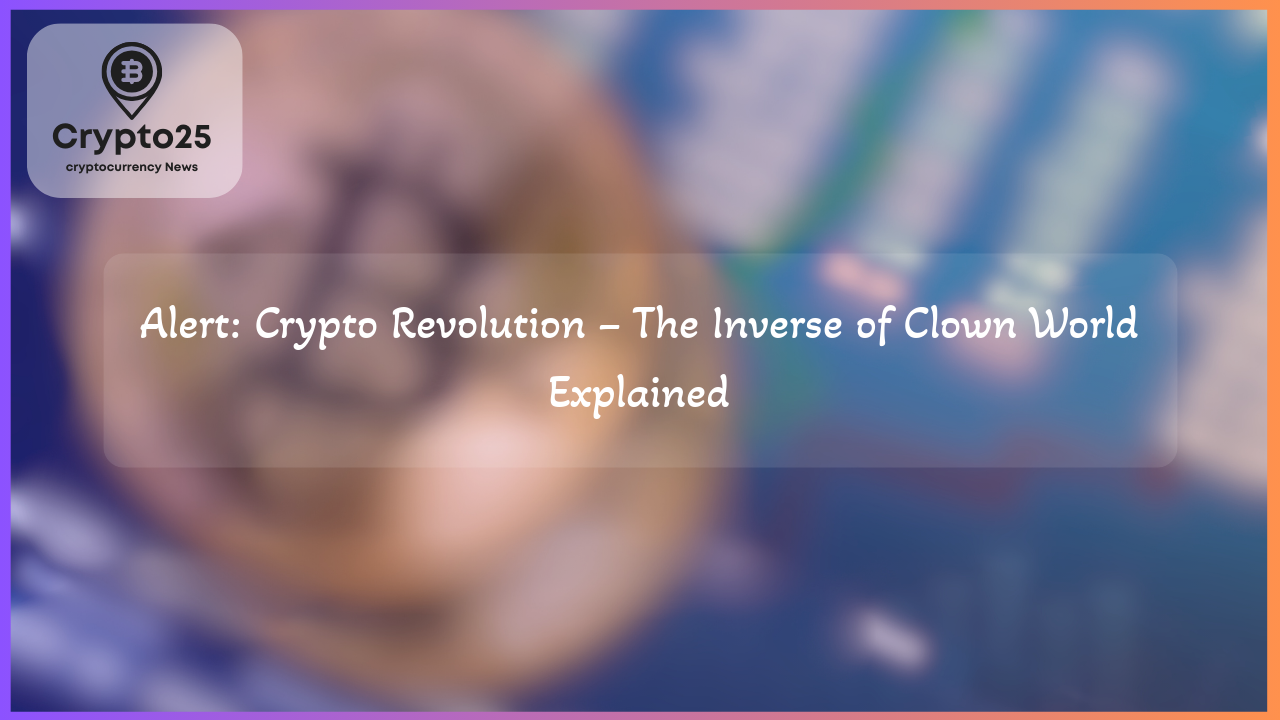
In a world increasingly defined by change, few innovations capture the spirit of transformation as powerfully as Bitcoin. A technological marvel and cultural phenomenon, Bitcoin goes beyond its status as a digital currency to provoke philosophical and ethical discourse. Among the vast resources exploring this paradigm shift is “Bitcoin: The Inverse of Clown World” by Knut Svanholm and Luke de Wolf, a book that challenges societal norms while offering profound insights into self-awareness, individual responsibility, and global systems.
## The Intersection of Bitcoin and Societal Change
“Bitcoin: The Inverse of Clown World” dives into intricate ties between failing monetary systems, political distortion, and the unraveling of societal values. Svanholm and de Wolf present the argument that the collapse of sound money serves as a precursor to widespread sociopolitical chaos. According to the authors, this concept—aptly dubbed “Clown World”—reflects the absurdities embedded in contemporary culture, such as bureaucratic inefficiencies and misplaced societal priorities.
The book positions Bitcoin as the antithesis of this chaos, emphasizing its capacity to return human interactions to a foundation of honesty, meritocracy, and fairness. In exploring this idea, the authors traverse a wide spectrum of topics, ranging from economic models like Austrian economics to the psychology of collective behavior. By reconnecting humanity to the principles of sound money, Bitcoin emerges as more than a financial tool—it represents a means of restoring individual sovereignty.
## Why Bitcoin Matters in a Post-Clown World Era
The overwhelming appeal of “Bitcoin: The Inverse of Clown World” lies in its ability to frame Bitcoin as a force against the seemingly arbitrary forces dominating our lives. The authors dissect the mechanics of “Clown World,” describing it as a societal condition where the meaningful is deprioritized and political optics take center stage. They claim that when money—society’s measuring stick for value—loses integrity, so too do other systems, from governance to cultural norms.
The solution, Svanholm and de Wolf argue, is Bitcoin’s immutable supply of 21 million. Unlike traditional fiat currencies prone to political manipulation and inflation, Bitcoin operates on decentralized principles, free from external interference. According to the book’s central thesis, this scarcity and integrity protect Bitcoin users from the pitfalls of moral or political decay, empowering them to regain clarity and intentionality.
From a philosophical standpoint, readers are encouraged to view Bitcoin as not just a financial revolution but as an overhaul of how value and responsibility are distinctly understood in modern society. Svanholm’s focus on “taking responsibility” underscores a larger narrative: Bitcoin is as much about personal transformation as it is about economic systems.
## Exploring Humanity’s Role in the Bitcoin Revolution
Throughout “Bitcoin: The Inverse of Clown World,” the authors examine the interplay between individual choices and collective evolution. A recurring theme is the importance of mental fortitude in navigating a world clouded by distractions and misinformation. From amusing critiques of wokeness to reflective anecdotes about leadership, the text oscillates between sharp cultural commentary and actionable life advice.
For the authors, Bitcoin’s real-world applications pale in comparison to its philosophical undertones. They propose that adopting a Bitcoin standard forces individuals to adopt behavior rooted in long-term thinking. Bitcoin investors are incentivized to move away from instant gratification and shallow consumerism, instead embracing patience, collaboration, and perseverance—a polar opposite of the values prevalent in fiat-driven economies.
Take, for instance, Svanholm’s illustrative narratives on cooperative systems, including game theory and the prisoner’s dilemma. These explorations, while sometimes dense, drive home the point that trust and responsibility thrive under systems anchored in fairness and predictability. The book suggests that societal improvement is inevitable when communities adopt economic models grounded in cooperation rather than exploitation.
| Title | Details |
|---|---|
| Market Cap | $1.2 Trillion |
| Bitcoin Supply Cap | 21 Million |
| Key Themes | Philosophy, Economics, Responsibility |
## Final Thoughts on “Bitcoin: The Inverse of Clown World”
Svanholm and de Wolf offer readers a masterpiece that seamlessly marries humor, economics, and ethics. “Bitcoin: The Inverse of Clown World” serves as both a critical reflection of the current state of global disarray and an optimistic guide to rebuilding a more responsible and equitable future. While sections of the book may feel dense for newcomers, the playful tone and thought-provoking narrative make it accessible to experienced crypto enthusiasts and curious readers alike.
As Bitcoin continues to evolve, so too will conversations surrounding its broader cultural implications. This book stands as a resounding reminder of why Bitcoin matters—not simply as a remedy for the financial market’s dysfunction but as a tool for fostering human potential. Whether you’re a committed Bitcoiner or exploring the space for the first time, this book promises an enlightening and entertaining journey into a world redefined by Bitcoin’s values.
